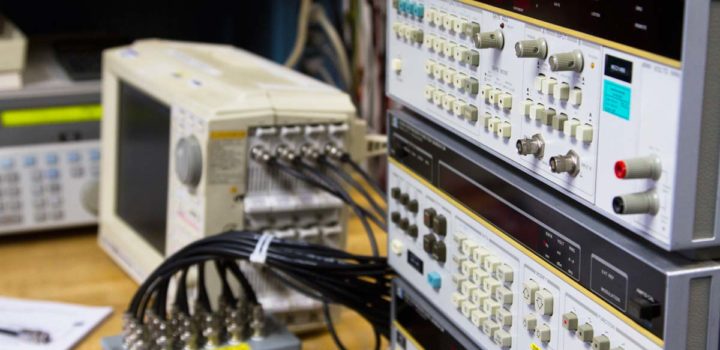The Business of Calibration

Industries which use electrical equipment of a kind that depends upon accuracy to drive optimum performance need to know that their instruments are functioning exactly as they should. Sometimes a small discrepancy in a measurement can have very serious consequences at the end of a mechanical or production process.
This is where the need for accurate calibration arises, in a situation where guesswork is just not enough. Whether the electrical parameter under scrutiny is current, voltage, resistance, induction, time, weight, temperature, frequency or capacity, the need for precise information as to the performance of an industrial item is very often crucial.
Outsourcing Calibration to an Expert Service Provider
For most businesses providing calibration in-house is not an expense or effort which can be justified by usage. More often that not the task will be outsourced to another company which specializes in the practice. After all, the name of the game is precision so unless an in-house operation can guarantee the level of experience and sophistication required the best results are likely to be found by handing over responsibility to a firm whose area of expertise it is.
An external calibrator can visit your premises or in some situations you will be able to visit the service provider, however in many cases it is sufficient to send a sample to be analyzed. For those attracted by the notion of working in the technology sector there are many options for work within calibration. Click here to read about pipette calibration coupled with various associated repair services, for example. Whilst taking this up as a small enterprise would require a considerable amount of acquired expertize, it is a small and compact enough operation not to require an initial outlay that is prohibitive.
Calibration Audit and Certification
Many businesses that are dependent upon accurate readings, whether at home or overseas, will be required by their own industries to maintain a calibration audit of all their pertinent equipment. Where appropriate certification is awarded following a successful program of measurements.
Of course achieving accurate calibration is seldom as simple as testing a basic sample and merely performing a reading. The real art is in minimizing uncertainties and this itself can be an industry all of its own, with purpose-made vibration reduction technologies typically integrated into the process. The International Organization for Standardization (ISO) sets the requirements which are the minimum that need to be met, and the appropriate accreditations are issued only to compliant providers which successfully meet the criteria.
Business Opportunities in Calibration
There are a number of options for new businesses looking to enter the industry, whether it be by providing individual services within the field or in the manufacture of items employed during the process. A comprehensive understanding of all the stringent requirements that apply is an absolute must, and an extensive program of training and education is likely to be necessary. The benefit of acquiring this knowledge is entry into a highly specialized industry where the provision of much sought-after services is lucrative and much in demand.
